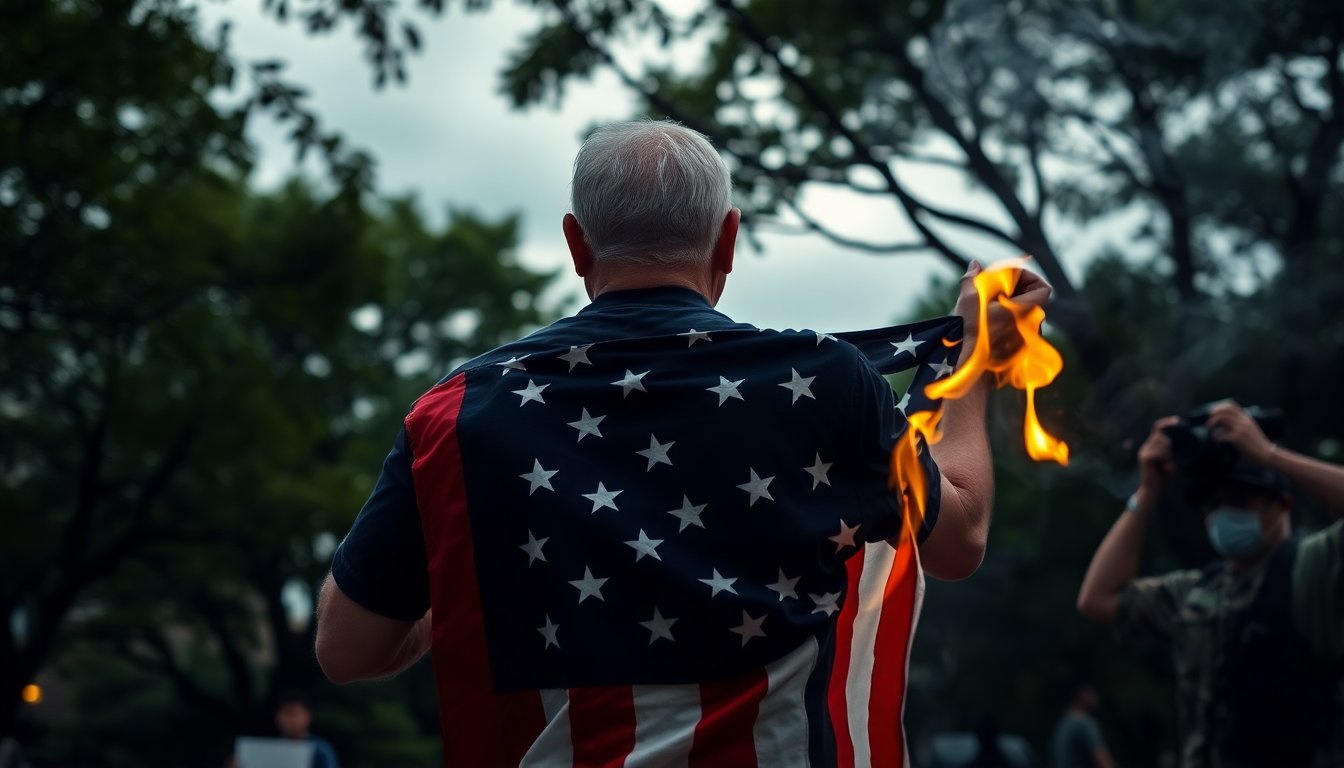Table of Contents
The act of burning a flag is widely regarded as a powerful form of protest, symbolizing a rejection of national ideals. A recent incident involving a veteran who burned the US flag has sparked significant debate regarding the limits of patriotism and the right to protest in a democratic society. This act serves as a stark illustration of the deep frustrations some individuals feel towards governmental policies.
The significance of flag burning in protest
Historically, the burning of flags has emerged as a compelling symbol of dissent. For many, it represents profound frustration with government actions or policies. In this instance, the veteran’s decision to burn the flag was a direct critique of what they perceived as unjust policies. This event prompts important discussions about the essence of patriotism and the various ways individuals voice their grievances.
Understanding the protest motivations
Grasping the motivations behind the veteran’s protest is essential for comprehending its significance. The individual aimed to highlight perceived injustices during the Trump administration, believing these actions undermine the nation’s fundamental values. By employing such a dramatic form of protest, the veteran sought to stimulate discussion among citizens about the current state of the country.
Public and political reactions
The flag burning incident has sparked diverse reactions from both the public and political figures. Supporters contend that the veteran’s actions represent a legitimate form of political expression, while opponents see it as a violation of national pride and honor. This division underscores the complexities surrounding free speech rights and their relationship with national symbols.
The legal landscape surrounding flag burning
In the United States, the act of burning the flag is protected under the First Amendment. The Supreme Court has determined that such actions qualify as free speech, even if they elicit strong emotional responses. This legal framework raises significant questions about the nature of protest and the degree to which individuals can voice their discontent with the government without facing consequences.
Additional protests and their implications
This incident is part of a broader trend, as protests have surged across various platforms. One notable case involved a Pro-Palestinian activist who was arrested for wearing a shirt featuring a controversial slogan. Such actions illustrate a growing movement where individuals use clothing and personal expression as forms of protest. These occurrences emphasize the ongoing tension between freedom of expression and societal expectations.
The Israeli political landscape has witnessed significant protests, marked by instances where politicians faced removal from podiums during intense debates. These events highlight the fragile equilibrium between political expression and maintaining order within legislative frameworks.
The global context of protest
Protests extend beyond the United States, manifesting in various forms worldwide. For example, an Australian writer recently recounted their experiences of deportation from the US, illustrating the complex relationship between political expression and legal ramifications in diverse settings. Such accounts underscore the broader significance of dissent and its resonance with audiences around the globe.
The personal costs of protest
Protesting often entails significant personal sacrifices. A retired priest was arrested for expressing support for the Palestine Action movement, illustrating the potential consequences individuals may face for their beliefs. Such instances of personal sacrifice highlight the risks involved in opposing perceived injustices.
Additionally, journalists in the UK advocating for pro-Palestinian causes have encountered police raids, jeopardizing their safety and freedom of expression. These events underscore the persistent struggle for journalistic freedom and the need to report on sensitive issues without fear of government retribution.
The evolving landscape of protest
The act of protest, such as the recent flag burning incident, plays a vital role in democratic engagement. As society navigates increasingly complex political issues, individuals are likely to find new methods of expressing dissent. Understanding the legal and social ramifications of these actions will be crucial for shaping future political discourse within a democratic framework.


